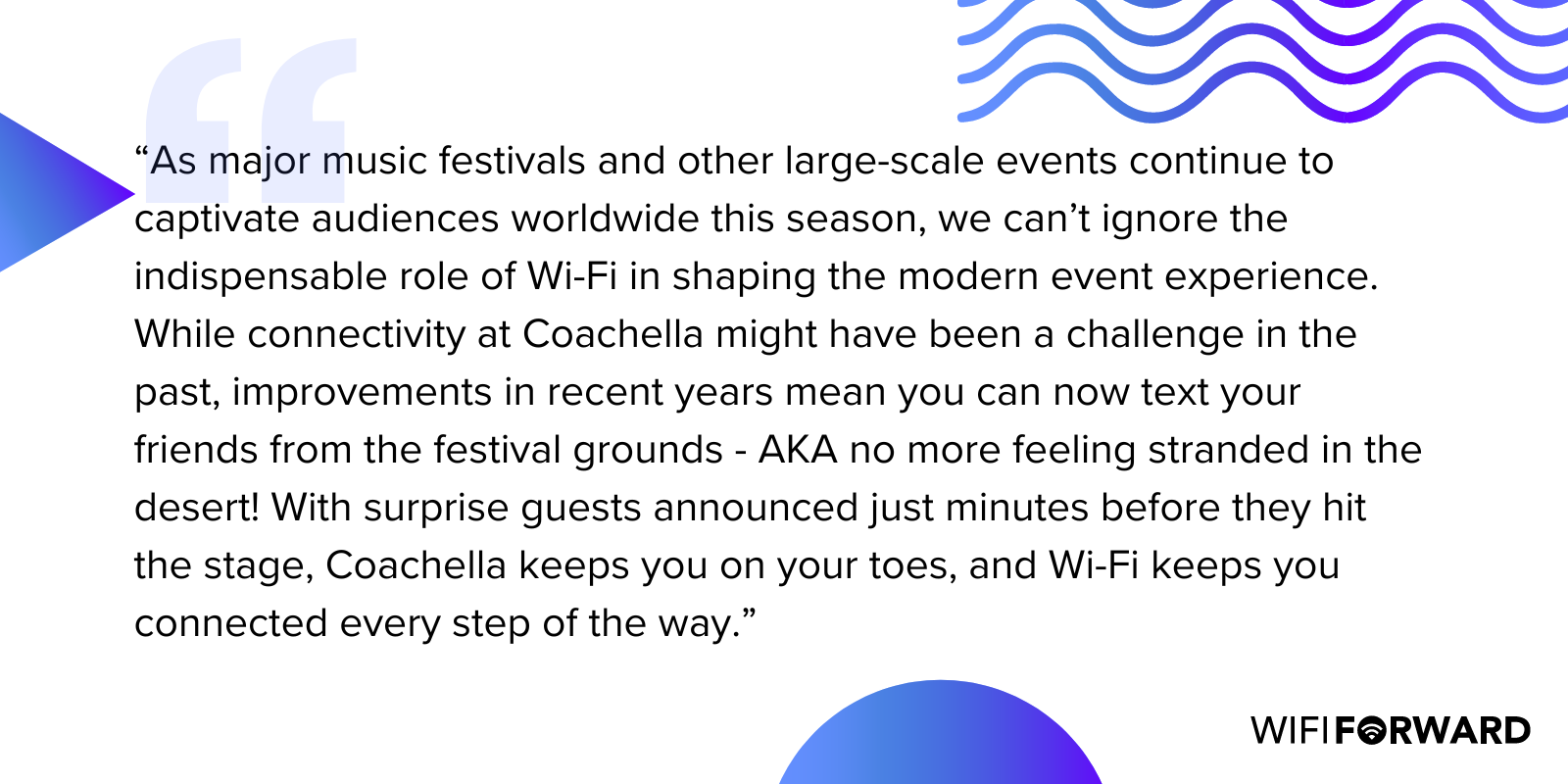“WifiForward congratulates Brendan Carr for being named by President-elect Trump to serve as Federal Communications Commission (FCC) Chair. Commissioner Carr is both knowledgeable and skilled in ensuring the agency is well positioned to address complex matters, including spectrum policy. The Commissioner has advocated for policies that strengthen our Wi-Fi networks to the benefit of millions of Americans who depend on it to run their business, do their school work, visit with their doctors, and much more. He has helped to ensure that the U.S. can continue leading the world by voting to open the 6 GHz band for unlicensed use and has also worked to secure our communications networks from foreign actors.
Read More “STATEMENT: WifiForward Congratulates Carr on Appointment to Lead the FCC”
Wi-Fi is the fuel that powers so much of our daily lives. The pandemic brought this into focus, as so many of us were physically confined to our homes, but still needed to stay connected and move forward with the rest of our lives. Even in a post-pandemic world, Wi-Fi remains the workhorse of the internet, carrying up to 89% of all traffic on mobile devices across the five largest carriers (AT&T, Verizon, T-Mobile, Spectrum Mobile, and Xfinity Mobile) according to a new Opensignal report and supporting hundreds of millions of devices (a number that keeps on growing). However, the Wi-Fi that we rely on throughout our day needs attention from policymakers to keep meeting our everyday needs.
Read More “BLOG: Wi-Fi Is Better Than Ever”
The numbers are in—and Wi-Fi continues to power the majority of Americans’ smartphone data usage. A new study from Opensignal analyzed data usage patterns across five mobile service providers (Verizon, T-Mobile, AT&T, Spectrum Mobile, and Xfinity Mobile) to examine users’ habits both at and away from home. For all five providers, between 82% and 89% of data usage is over Wi-Fi vs mobile.
Read More “STUDY: New Study Confirms Most Smartphone Data Usage Occurs Over Wi-Fi”
While opening the 6 GHz band in 2020 was a sorely-needed response to congested Wi-Fi spectrum, future-proofing Wi-Fi spectrum demands action from the executive branch to allow Wi-Fi networks to extend into federally-controlled spectrum at 7 GHz.
Read More “BLOG: Wi-Fi and 7 GHz: A win for consumers and national security”
When you think of Wi-Fi, you likely think about your day-to-day access to the internet. You might envision video calls with loved ones, emailing work colleagues, or scrolling social media at an airport. In fact, up to 90% of all mobile device traffic is carried on Wi-Fi. And what most Americans don’t realize is the tremendous positive impact Wi-Fi has on our economy. A recent report assesses Wi-Fi’s significant economic value—and how it continues to grow.
Read More “BLOG: Wi-Fi: An Economic Powerhouse”
Washington, D.C. – Today, Telecom Advisory Services released a new report demonstrating that the annual economic value of Wi-Fi will reach $2.4 trillion in 2027, a 33% increase over the 2024 value ($1.6 trillion). The 2027 estimate includes a forecasted $514 billion in consumer benefit, $624 billion in producer surplus, and $1.2 trillion in GDP contribution.
The new study seeks to reassess the significant value of Wi-Fi to the U.S. economy, following a 2021 study, to reflect the growing number of devices and data traffic consumed over Wi-Fi networks.
Read More “STATEMENT: New Study Forecasts Major Increase in Economic Power of Wi-Fi”
Today is World Wi-Fi Day! This year also marks the 25th anniversary of Wi-Fi and the tenth year of WifiForward. In the decades since Wi-Fi was merely a glimmer in the FCC’s eyes, Wi-Fi has become a fundamental pillar of connectivity in our daily lives. In homes, workplaces, schools, and public spaces, Wi-Fi is the true “Swiss army knife” of internet access – and at WifiForward, we’re proud to advocate for more unlicensed spectrum so Wi-Fi can continue to thrive.
Read More “BLOG: Celebrating 25 Years of Wi-Fi: The Essential Pillar of Connectivity and Progress”
Washington, D.C. – WifiForward today released the following statement on proposed spectrum legislation:
“WifiForward commends Chair Cantwell, the Departments of Defense and Commerce, and the Joint Chiefs of Staff for today’s announced spectrum policy package, which will enhance our national security and connect our communities. Today’s deal represents a significant step forward in breaking the logjam on spectrum legislation so that the U.S. can continue to lead the world in innovative spectrum uses of all types, including Wi-Fi. We urge Congress to advance this important legislation as quickly as possible.”
Read More “STATEMENT: WifiForward Statement on Proposed Spectrum Legislation”
Washington, D.C. – Today WifiForward released the following statement on the release of the Spectrum and National Security Act by Sen. Maria Cantwell, D-Wash., Chair of the Senate Commerce Committee:
Read More “STATEMENT: WifiForward Statement on the Spectrum and National Security Act”
Get ready to double-tap, because we are LOVING this year’s Coachella content. From Lana Del Rey’s memorable entrance via motorcycle to her viral yet unreleased song, Jealous Girl, to Taylor Swift and Travis Kelce dancing the night away, fans have been able to stream it all. We don’t doubt you’ve also seen Renee Rapp and Kesha’s surprise appearance to perform “TiK ToK” all over your, well, TikTok. As social media recaps the highlights, the daring outfits, the pictures, the Instagram stories, reels and TikToks, there’s one unsung hero from the festival that we can’t forget – Wi-Fi.
Read More “BLOG: Capturing Coachella: Taylor Swift and Travis Kelce Dancing, Lana Del Rey’s Epic Entrance and More … Brought to you by Wi-Fi”

